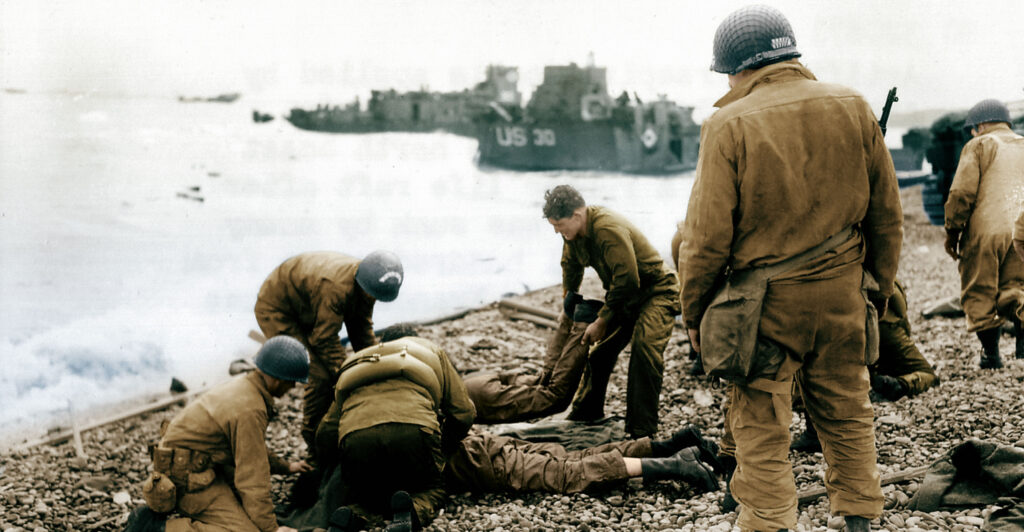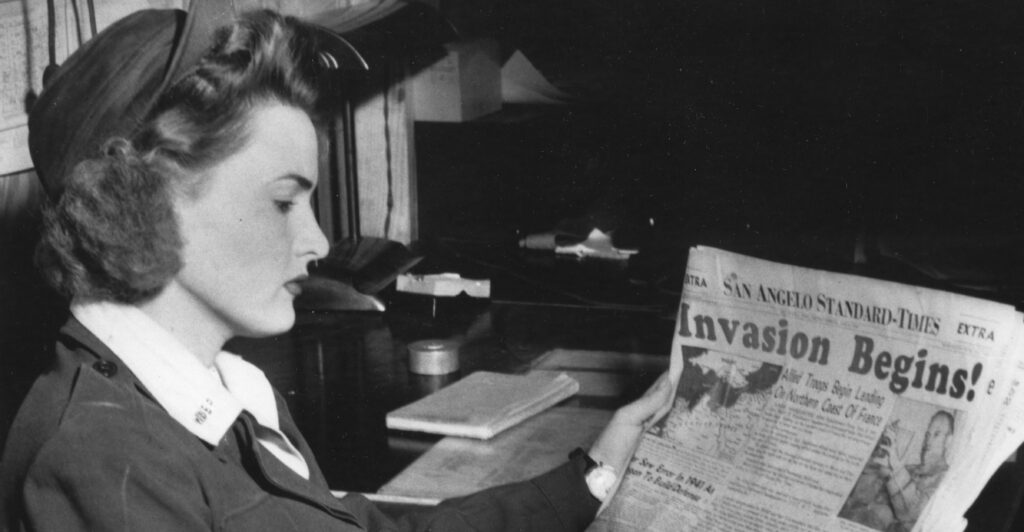On rare occasions, history records an event so extraordinary in its scope and significance that it serves as a reference point for everything that follows: the survival of nations, whether people are free or enslaved, and whether opportunity or despair will be the lot of the average man or woman.
Such events determine the path of humanity for a very long time, sometimes measured in centuries. The Greek victory over the Persians at Salamis in 480 B.C. is one such event. The massive cross-channel invasion of Allied forces (since known as D-Day) that took place on June 6, 1944, was another.
In the five years that preceded it, Europe had been thrown into convulsion as Adolf Hitler’s war machine raged across the Continent. In the days, weeks, and months that followed D-Day, victory was assured (though at unknown additional cost), accompanied by a future that did not include domination by the Nazi regime.
But that day itself, the beginning of Operation Overlord, first had to happen, and it had to be successful. If it had failed, then the future of Europe, and likely much of the world, would have been very dark for a very long time.

By mid-1944, a slew of countries had been conquered, occupied, or severely damaged by Germany: Austria, Belgium, Czechoslovakia, Denmark, Estonia, France, Greece, Hungary, Italy, Latvia, Lithuania, Luxembourg, the Netherlands, Norway, Poland, Russia, San Marino, Ukraine, and Yugoslavia.
Great Britain had held out, with sheer determination and the aid of essential American military support, against the onslaught of German airpower. Even North Africa was embroiled, as German forces rampaged across Egypt, Libya, Tunisia, Algeria, and Morocco.
Germany kept a stranglehold on the Mediterranean and sank more than 3,000 merchant ships in the Atlantic, with the loss of 60,000 civilians and military personnel, before Allied navies managed to gain the upper hand.
D-Day, June 6, changed all of that. It was a singular event, to be sure, but just the tip of a much fuller story. The herculean effort of D-Day was the physical, visible manifestation of America’s human and industrial potential, harnessed for war in the years that preceded it.
The landings on Normandy’s beaches and the Allied push into occupied France involved more than 5,000 ships, nearly 200,000 troops, 4,500 bombers, and 3,800 fighters, the vast majority contributed by America. The military power assembled from across the United States, Canada, and Great Britain represented the forces of good determined to defeat the forces of evil and the commitment of the United States to this cause.
The losses in human life were considerable, amounting to some 3,400 killed or missing on that day alone. Over the next month, the United States and its allies would suffer 22,000 casualties.

The effort committed to D-Day opened a gateway to Europe through which flowed an almost incalculable amount of equipment, material, goods, and—above all—people, invested in liberating captured territories and defeating the German army.
It couldn’t have been known at the time, but D-Day also set the condition to keep at least half of Europe free following the defeat of Germany, when the Soviet Union moved to dominate as much of Europe as it could at the end of the war and would do for a half-century thereafter.
Investments in freedom are never without enduring value, but they also never come without cost, sometimes quite painful cost often measured in lives. June 6, 1944, showed the best of free peoples, free markets, and representative government. It manifested the spirit of all of these, and the sacrifice often needed to preserve liberty.
Though D-Day, 1944, occurred nearly 80 years ago, it offers lessons we should pay attention to today.
Russia’s assault on Ukraine, Iran’s obsession with acquiring nuclear weapons and the destruction of Israel, and China’s relentless pursuit of hegemony hint at the sort of world envisioned by Hitler. D-Day showed what might be required to prevent such a future from taking root.
Fortunately, D-Day also showed the spirit of America in the “boys of Pointe du Hoc” and their brothers who stormed the beaches and cliffs of Normandy, displaying a spirit that still pervades and undergirds America, though not without attention and our own investment.
Let that spirit die, either from lack of care or investment, and we’ll have the dark world of Nazi Germany. But nurture it and celebrate it, and we’ll have the world defended and advanced by those who made D-Day a success.
Holidays exist to serve as moments of reflection, to provide us with something to think about that is important and worthwhile. This 79th anniversary of D-Day may not be a formal holiday, but it certainly warrants the same consideration we give to Memorial Day and to our own Independence Day, when Americans take stock of who and what we are—and of what it takes, sometimes, to preserve the things we cherish.
This piece originally appeared in The Daily Signal



